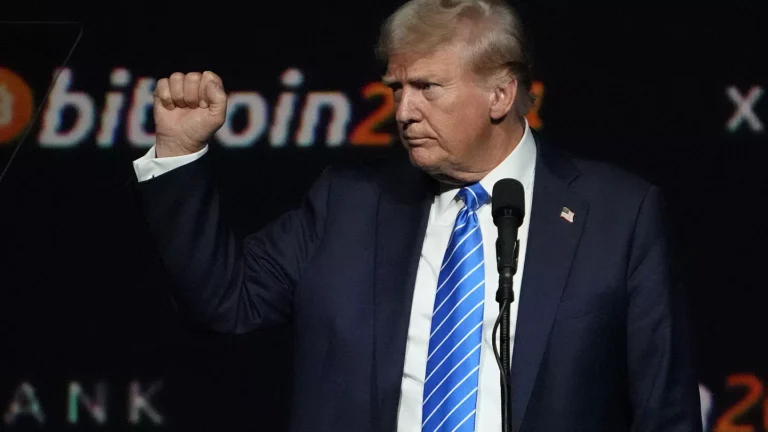In the world of cryptocurrency, change is constant, and regulations are becoming more crucial. Recently, Representative French Hill expressed hope that important crypto legislation could be passed before the end of 2024. Understanding this development is key for anyone interested in the cryptocurrency market, especially for young people like you who might want to get involved in this rapidly evolving field. Let’s break down the main points of this article and why they matter.
Key Points from the Article:
- The Context of Lame Duck Sessions:
- The term “lame duck” refers to the period after the November elections when the current Congress continues to meet until the new members take office in January. This is a critical time for passing legislation because it often leads to last-minute decisions on important bills.
- Proposed Legislation:
- Rep. Hill is focusing on two key bills:
- FIT 21: This is a framework for regulating digital commodities. It aims to clarify which government agency oversees what aspects of cryptocurrencies. The Commodity Futures Trading Commission (CFTC) would handle digital commodities, while the Securities and Exchange Commission (SEC) would oversee digital assets related to investment contracts.
- Stablecoin Legislation: This bill deals with stablecoins, which are digital currencies designed to maintain a stable value, usually pegged to a fiat currency like the US dollar. However, there are concerns about allowing state regulators to approve stablecoin issuances without federal oversight.
- Rep. Hill is focusing on two key bills:
- Political Dynamics:
- Hill’s comments came during DC Fintech Week, emphasizing the growing importance of technology in finance. He noted that the future of the bills depends on the outcome of the elections and existing legislative priorities, such as the National Defense Authorization Act (NDAA), which funds defense activities.
- Optimism vs. Realism:
- While Rep. Hill is hopeful about the legislation moving forward, there are challenges. TD Cowen, an investment bank, suggests that time is limited, and lawmakers have other pressing legislation to address before the year ends. This creates uncertainty about whether these bills will pass.
Why This Matters:
- Understanding Regulation:
- Knowing how regulations affect cryptocurrencies is crucial for anyone wanting to invest or engage in this space. Regulation can impact prices, accessibility, and the overall stability of the market.
- Future Opportunities:
- As legislation is developed, it can create new opportunities for investment and innovation within the cryptocurrency ecosystem. If stablecoins become more regulated, for example, they could gain wider acceptance and use, making them a viable option for transactions.
- Informed Decisions:
- Keeping up with these developments allows you to make informed decisions about your investments. Understanding the legal landscape can help you navigate risks and opportunities more effectively.
- Career Prospects:
- The fintech sector is growing, and having knowledge about cryptocurrency and its regulatory environment could open up job opportunities in finance, tech, and policy-making.
Steps to Increase Your Knowledge:
- Stay Updated: Follow reliable news sources that cover cryptocurrency regulations and market changes.
- Engage with the Community: Join online forums or groups focused on cryptocurrency to learn from others and share insights.
- Take Courses: Consider online courses that cover blockchain technology, crypto investing, and financial regulations.
- Monitor Legislative Changes: Pay attention to updates on bills like FIT 21 and stablecoin legislation to understand their potential impact on the market.
Key Terms to Remember:
- Lame Duck Session: Period when the current Congress meets after elections.
- FIT 21: Proposed legislation for regulating digital commodities.
- Stablecoins: Cryptocurrencies designed to maintain a stable value.
- CFTC and SEC: Agencies overseeing different aspects of cryptocurrencies.
- NDAA: A bill that funds national defense, influencing legislative priorities.
By understanding these concepts, you’re building a solid foundation in the world of cryptocurrency, preparing yourself for a future where these digital assets play an increasingly significant role in finance and technology. Embrace this learning journey—it’s not just about trading; it’s about being part of a financial revolution.



